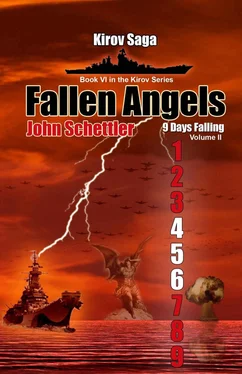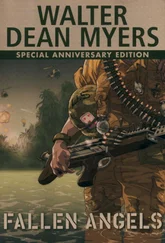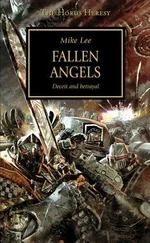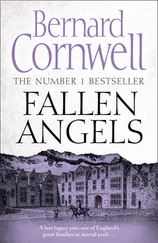Haselden tapped lightly near the back of the driver’s cabin and the engine growled as the truck started down the road. He settled in with Sutherland and Sergeant Terry.
“Those three back there will have a long walk home,” he whispered. “And a good long sleep until they wake up. Good that we didn’t have to break any necks.”
“Right, Jock,” said Sutherland. “Allies and all. But where is this lot going?”
“We’ll find that out soon enough, Davey Boy. For now, get the mud off your boots, slip into these nice warm coats and put on those Ushankas. We’re proper NKVD soldiers now. Enjoy the scenery.”
“Yeah? Well what’s the plan, Jock?”
“We wait a bit. It looks like ten miles to the next river. There’s a small town on the coast there as I read it, a place called Sulak. South is Makhachkala, another fifteen miles. This column won’t do much more than thirty miles an hour on these roads. It’s 10:40 hours now, so I’d say we’ll probably get down there before midnight, and perhaps they’ll stop.”
“Then what? That cigarette trick of yours was handy, but I counted eleven more men forward of this truck, including our driver. Lucky for us there’s no window in the back of that cab.”
“No worries. We can play this one of two ways now. We could work our way forward and find this man before we reach town, but that won’t be easy unless they stop again, and any slip up would blow our cover and start a row here. The other thing is to slip away just as we reach the outskirts of town. Then we work our way in under cover of these hats and jackets, looking all proper and such. We find this man in town and try to get him before dawn.”
“Right,” said Sutherland.
“Assuming they stop here.” Sergeant Terry wasn’t one for words, but he squeezed that out from beneath his thick mustache, eyeing Haselden in the dark.
“The Sergeant has a point,” said Haselden. “Well if they don’t stop, and roll right on through town, then they’re probably bound for Baku. We won’t know that one way or another until we get to Makhachkala and see what they do.”
“So we can’t very well slip away before then,” said Sutherland. “If they push on to Baku we’d be stuck. We’ll lose them for sure.”
“So we stay with the column,” Haselden concluded. “It’ll be dangerous. If they do stop and that officer comes mucking about we may have to act, and quickly. Eleven men or no, we’ll have to make our play.”
“In that event, let’s just hope they stop somewhere nice and secluded. I’d hate to start a brawl in the middle of town square.” Sutherland shook his head, the difficulty of their situation apparent. “Alright, suppose we pull this off and we do get this man. What then?”
“We get him east to the coast. If we’re in a settled area we look for a boat, any boat, and head north up the coast to that finger of land where Corporal Severn is waiting. Still packing that wireless in one piece, Sergeant?”
“Aye, sir.”
“Good enough. We get this man, call up Corporal Severn with the swift boats and have him come south to meet us if things get hot. Then we get across to Ft. Shevchenko as fast as we can.”
“Sounds easy enough when you say it like that, Jock. Yet as you can see, things happen. This column could meet up with another. There might be a full company of NKVD at the other end of this road for all we know. We go in undercover and suppose we run into some hothead officer. What then?”
“If it comes to that then we’ll have to rely on our wits, stealth and the weapons we’re still carrying. As I see the odds now, the three of us should be able to handle the men in this column. After all, we’re 30 Commando.”
“Here, here,” said Sergeant Terry. “Wish I had a battalion of the lads with us now. Then it wouldn’t matter what we run into.”
“If wishes were horses, Sergeant Terry.”
“Aye, sir.”
They settled into silence, each man turning over the situation in his mind. For the moment they had a breathing space for a little welcome rest off the damp earth, but they knew it would not be long before they would have to answer all the questions they asked one another in the dark. Something told Haselden that Lieutenant Sutherland was right. A smile and a cigarette wouldn’t do the trick again. Now it was down to pistols, knives, and the two Stens.
Fedorovstepped onto the plank leading up to the gangway, a wary look in his eye. The boson’s mate gave him a glance, then saluted when he saw the decorations on his chest and the obvious insignia of a high ranking officer on his cap.
It had been a long and tiresome journey by rail south to the Caspian. The land seemed to stretch on and on in an endless wasteland of parched, tractless earth. In places the terrain was so untraveled that the rail line failed and they had to detrain to look for transport by truck. But over two days time they managed to reached their destination on the northernmost shore of the Caspian Sea at a town called Guryev, renamed Atyrau in the early 1990s.
The city was situated at the mouth of the Ural River, sitting right astride the border of Europe and Asia. The muddy brown water of the river wound through West Kazakhstan from the north in a long dull ribbon to eventually find the sea. Over the years the settlement became famous for its fish, but just off shore lay vast latent fields of undiscovered oil that would later become the Tengiz and Kashagan superfields. Decades into the future, big oil conglomerates would delve deep into the waters for the light sweet crude and lucrative gas fields, and Ben Flack would hold sway on platform Medusa at the edge of a growing conflict over energy supplies. Yet at that moment the town and its harbor on the sea seemed a lonesome and forlorn place.
In recent months, the threat posed by the advancing German Army had seen the arrival of long lines of barges and partially submerged cisterns of oil from Baku towed by commercial tugs. The Soviets were desperately trying to cap the threatened oil wells of Baku and transport the rigs and other equipment, along with as much oil as possible, to other shores far from the German advance.
When they arrived in town Fedorov learned that the Germans had finally cut the rail and road connections between Astrakhan and Baku, and he knew the way south would now mean a hazardous journey by sea. There was a small flotilla of commercial ships still making regular runs to Baku, but the only ship in port the day they arrived was the Amerika , an old oil tanker that would leave the following morning.
The quays and wharves were littered with rusty barrels, old sections of weathered pipe, dilapidated drilling equipment, and abandoned vehicles that seemed as though it had been washed ashore by the ebb and flow of the tides of war. Handfuls of stevedores and dock workers rummaged through the scrap, and occasionally a column of three or four trucks would arrive to haul things away. The smaller boats in the harbor seemed useless for what they had planned, old rotting wood fishing boats that seemed the sole livelihood of lean, haggard men trying to scratch out a living for their families, so they had no choice but to board the tanker.
“I did not expect the port to be so desolate,” said Fedorov to Troyak as they boarded the ship. “The war has not yet reached this place, but it is very near. The struggle for Stalingrad is still underway, and the German Army is deep in the Caucasus. Now we set sail for lands inside the war zone itself. We will have to get south of Kizlyar to avoid the Germans, and this tanker stops at Makhachkala before going on to Baku. It’s our one chance.”
“Zykov has been chatting with a few locals,” said Troyak. “They say the Germans have mounted occasional air strikes on the shipping lanes to the south.”
Читать дальше











